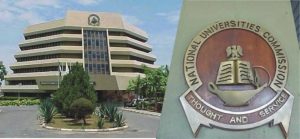
Credit: Punch Newspapers
Introduction
The importance of education in the growth and development of any nation cannot be overemphasized, which explains why nations make conscientious efforts to harness the education of their citizens to meet developmental needs.
Higher education in Nigeria dates back to when Yaba College was established by the colonial government in 1932 to meet their administrative convenience.
The limited scope of Yaba College informed the need to expand the opportunities for higher education, which was then only available overseas. The Elliot Commission was set up in 1945 to address this yawning gap by recommending the establishment of a university college in Nigeria. Thus, the first Nigerian university (the University of Ibadan) started in 1948 as a college campus of the University of London.
In 1959, another commission, the Ashby Commission was established to ascertain Nigeria’s post-independence educational needs. In 1960, the University of Nigeria, Nsukka was established as the first indigenous university in Nigeria. The commission also brought about a balance in the geographical distribution of university education which led to the establishment of the University of Lagos and Ahmadu Bello University in 1962.
By the 70s, possibly propelled by the oil boom era, the demand for higher education in the country was loud, compelling the federal government to establish new ones in Jos, Ilorin, Calabar, Port-Harcourt, Kano and Maiduguri, all of which became fully fledged universities in 1977.
Emergence of Federal and State Universities.
As the federal universities grew in number and student enrolment increased, state universities started emerging in 1979 with the Rivers State University of Science and Technology taking the lead. In the same vein, the emergence of private providers of university education in Nigeria became a reality when the first three private universities, namely, Igbinedion University, Okada, Babcock University, Ilishan-Remo and Madonna University, Okija, were licensed to operate in 1999.
With the increase in Nigeria’s population already put at over 200 million, there has been a need for the establishment of more Universities to meet the need of the number of candidates for admission into higher institutions.
According to the Joint Admissions and Matriculation Board (JAMB), the body that conducts tertiary entrance exams each year, the number of candidates applying for higher education in Nigeria is higher than the available capacity. Out of 1.8 million candidates who applied in 2022, only 600,000 (representing 33.3%) got admitted. Proponents of the creation of more universities in the country have blamed the search for higher education abroad on inadequate schools to cater to the number of applicants.
Reasons for More Universities
At a British Council workshop in Abuja on 12 October, NUC Executive Secretary, Dr Chris Maiyaki, in his presentation said, “Despite having 270 universities in the country and [while we are] still working on expanding universities, the commission has (received) over 270 applications for new private universities,”
Variously, it has been said that limited number of universities accounted for high number of candidates being unable to secure admission into varsities in a population that is dominated by youths; hence this will justify the additional establishment of more universities in the country.
However, without a doubt, many newly created universities are just for selfish reasons that range from political and economic gains at the expense of desperate candidates. This proliferation calls for caution so that the mushrooming of schools does not become the order of the day.
Implications
The implication today is that there is a dearth of infrastructure and staff in many of the universities across the country. The few qualified hands are migrating to places with stable economies and political stability.
By the last count of the National University Commission (NUC), the number of approved universities in Nigeria, both private, State and public universities had risen to about 264.
Yet, the Executive Secretary of NUC in Abuja, while giving licences to some newly established universities expressed that the number was still grossly inadequate considering the high demand for tertiary education.
Variously, it has been said that limited number of universities accounted for high number of candidates being unable to secure admission into varsities in a population that is dominated by youths; hence this will justify the additional establishment of more universities in the country.
What becomes a source of worry for some Nigerians is whether or not these universities can deliver quality education for students, as compared to what obtains in other universities around Africa and in the world. Not only this, analysts are more concerned if these universities can rank adequately well with the best in the world.
According to Times Higher Education (THE) in its 2024 ranking, only the Covenant University, Ota Ogun State, and the University of Ibadan, Oyo State, are the only Nigerian universities in the top 1000 spot.
Both Federal University of Technology Akure, Ondo State, and The University of Lagos, Lagos State, are between 1001 and 1200 spot, while others that ranked between 1201 and 1501 are Bayero University, Kano, University of Ilorin, Kwara State and University of Nigeria Nssuka, Enugu State.
Observers are of the opinion that it is not the indiscriminate establishment of universities to satisfy the yearning needs of Nigerians that matters, or their founding to satisfy political gains, but how well the universities are able to compare with the best in the continent and the world.
Although the NUC is seeing to be doing its best towards the accreditation of courses in various universities as it does its due diligence as required, the university themselves should not be pre-occupied only with satisfying the requirements of the NUC by only providing those requirements for the sake of approval.
Findings have revealed underhand dealings and racketeering during approval where visiting panels are heavily manipulated by corruption to do the bidding of the university seeking courses approval.
According to Olayemi Akinwumi, an education expert, before a university is established or approved, efforts should be geared towards providing infrastructural facilities and sound curriculum that can make students employable and stand neck and neck with other students in the world.
He added that adequate lecture theatres, hostels and well-stocked libraries, and laboratories with enough equipment make a very good university education.
The Academic Staff Union of Universities (ASUU) had pointed out at a time that governors were just turning the establishment of tertiary institutions into constituency project at the detriment of the existing ones.
ASUU proffered that instead of the establishment of more universities, government can effectively fund existing ones, expand their facilities and adequately equip them to comfortably absorb whatever number of students seeking admission.
One analyst, Aderemi Adewumi who resides in Lagos is of the opinion that instead of building new universities, an alternative that is economical is to embrace online education. Online education, according to him, is flexible and accessible which will also reduce incidences of kidnapping, however government would need to invest in internet infrastructure.
The regulatory body for university establishment in Nigeria, the National Universities Commission (NUC), should inspect these schools regularly to ensure that standards are not compromised.
Conclusion
In the quest for progress, Nigeria must carefully navigate the tension between the quantity and quality of universities. While expanding access to education is a noble goal, it should be done with a keen eye on maintaining and enhancing the quality of higher education. The indiscriminate establishment of universities can be transformed into a strategic and well-planned approach, ensuring that each institution contributes meaningfully to the nation’s intellectual and economic development. In this pursuit, Nigeria can build a higher education landscape that is both extensive and excellent, fostering a generation of knowledgeable and skilled individuals ready to meet the challenges of the future.
What’s your impression on this story?





















